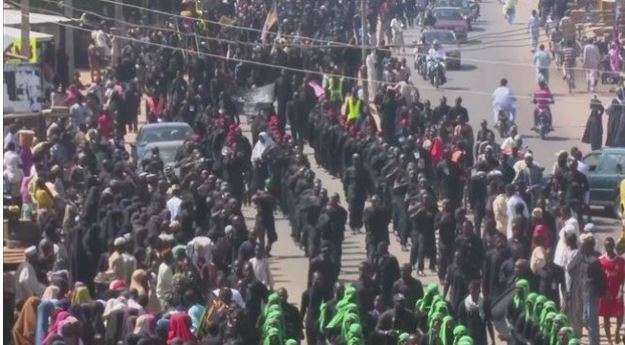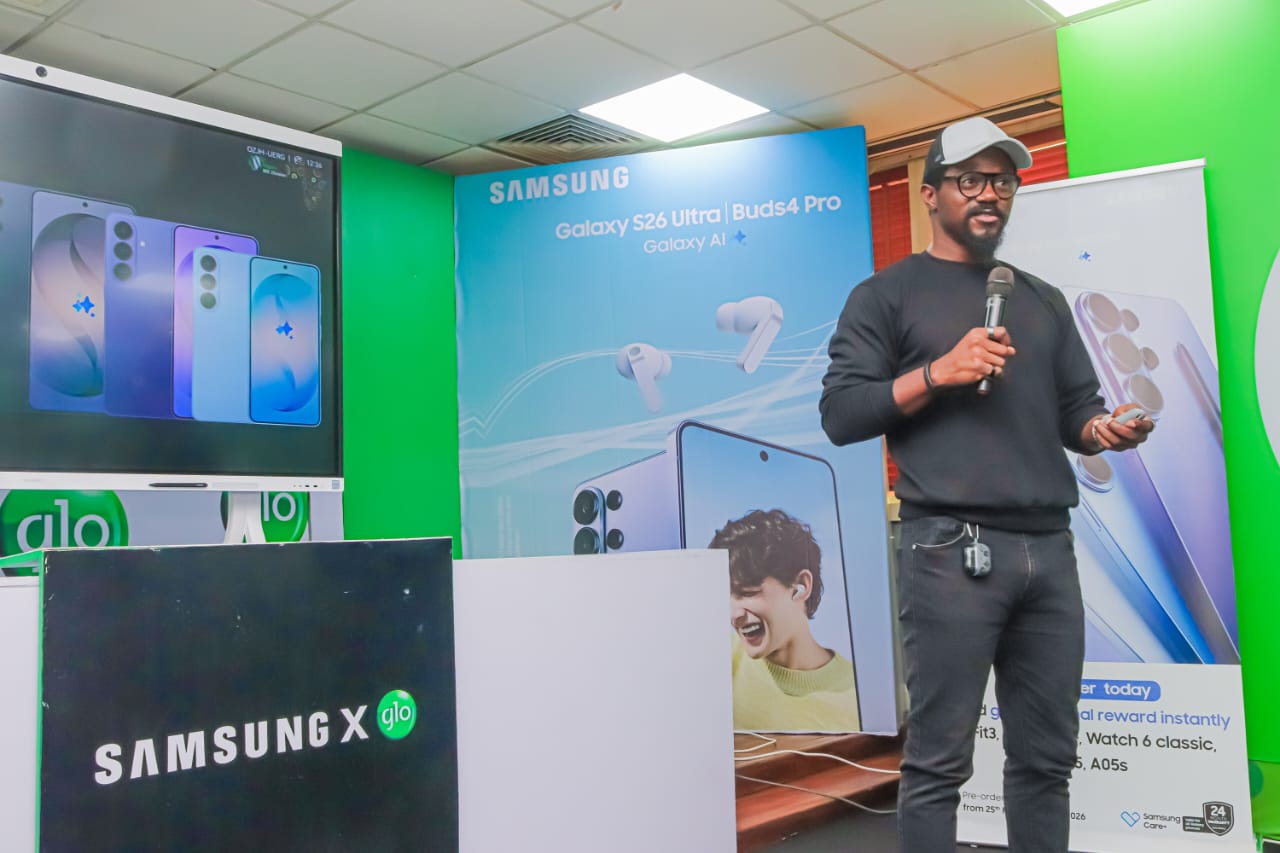A report released on Monday has accused Nigerian security and law enforcement agencies of pocketing as much as N100 billion in roadside bribery and extortion in the South-eastern part of the country alone over the last three years.
In a Monday morning statement to PREMIUM TIMES, the International Society for Civil Liberties & the Rule of Law said findings into the report began in August 2015. It accompanied the report with pictures that seemed to show officers receiving bribes at checkpoints.
A breakdown of the questionable operation showed that Nigeria Police Force pocketed N78.02 billion, the military (Army, Navy and Air Force) received N6 billion and paramilitary formations (Customs, Road Safety, NAFDAC and NDLEA) took N16 billion. These totalled N100.02 billion ($330 million).
The report reinforces fears that the controversial culture has worsened despite decades of condemnation even amongst top security chiefs. Successive police leadership over the last two decades have ordered the removal of checkpoints, but compliance is sparsely enforced and hardly are errant officers punished.
Emeka Umeagbalasi, a senior official at Intersociety who coordinated the report, said it was released to coincide with this year’s Yuletide, during which bribery and extortion by security agencies are said to be at their peak as millions embark on holiday trips to the Southeast.
“We hope this would help those travelling home to celebrate Christmas be aware of the tactics of security agencies, and the disastrous economic impact on the region,” Mr Umeagbalasi said.
The Nigerian Army and the Federal Road Safety Corps immediately dismissed the report, telling PREMIUM TIMES their respective personnel operate with strict ethical standards and those identified for misconduct are usually promptly disciplined.
Know Your Levy
The research for report, titled: Welcome to Southeast Region: Nigeria’s Headquarters of Official Highway Robbery; was conducted in all the South-east states and some parts of Delta State with predominantly residents of Igbo origin.
Intersociety found that the security agencies have designed specific levies for different categories of motorists across the South-east, and enforcement sometimes turns deadly.
“For every shuttle or Mitsubishi L300 bus loaded with passengers (only) in Anambra State, it is N50 at every police roadblock, and extra N200 is paid if loaded with goods and passengers,” the report said.
“For every commercial motorcycle or tricycle or Datsun or medium range truck loaded with goods, it is N200 at every police roadblock, and for every private vehicle owner accused of “incomplete” vehicle particulars, the least demanded sum is N4,000 or more, which must be paid randomly or on the spot to avoid being dragged to police station and have his or her vehicle impounded and indented as ‘stolen vehicle’,” the report said.
Some motorists are detained and bailed with illegal bail fees, ranging from N10,000 and above, the report found.
The questionable conduct, which has continued despite decades of condemnation even amongst top security chiefs, also differs from state to state in the region.
“Police extortions in Enugu and Ebonyi States, and to an extent, Imo State, are not as “lucrative” as those of Anambra and Abia States,” it said.
“Such extortions are majorly concentrated on critical federal and state roads as well as few commercial areas of the three states, such as Ogbete, Abakpa, and Nsukka in Enugu State; Abakiliki and Afikpo in Ebonyi State, Orlu and commercial parts of Owerri in Imo State.
“The same non-uniformity applies to many roadblocks in the five Southeast states, as well as those in Agbor, Asaba and their environs, all in Delta State,” which has estimated 40 per cent Igbo population, the report found.
Statistical Breakdown
According to the report, there were 250 police roadblocks in Anambra State between August 2015 and August 2016, and each made an estimated N40,000 per day. The 250 police roadblocks on Anambra roads between August 2015 and August 2016 illicitly collected N10 million per day, which translated to N300 million per month and N3.6 billion per year.
According to the report, at N40,000 per day, the 200 police roadblocks in Abia State during the period unlawfully milked the people of the South-east a total of N8 million per day, N240m per month and N2, 88 billion per year.
Also, at N30,000 per day for each of the 150 police roadblocks then in Imo State, a total of N4.5 million was reportedly realised per day, N135 million per month and N1, 62 billion per year.
Also with N25,000 per day for each of 100 police roadblocks in Enugu in the same period, N2.5 million was unlawfully collected per day, N75 million per month and N900 million per year, the report stated/
In Ebonyi, there were 50 police roadblocks, and each earned an average of N25,000 per day, totalling N1.25 million or N37.5 million per month and N450 million per year.
Between August 2016 and August 2017, at N40,000 per day, the 500 police roadblocks on Anambra roads collected N20 million per day, N600 million per month and N7, 2 billion per year.
At N40,000 per day, the 400 police roadblocks in Abia State received N16 million per day, N480 million per month and N5.76 billion per year.
With N30,000 per day for each of the 200 police roadblocks then in Imo State, a total of N6 billion was earned per day, N180 million per month and N2.16 billion per year.
Also with N25,000 per day for each of 200 police roadblocks in Enugu in the same period, N5 million was unlawfully collected per day, N150 million per month and N1.8 billion per year.
The 150 police roadblocks in Ebonyi State allegedly made N25,000 per day, totalling N3.75 million per day, N112.5 million per month and N1.35 billion per year.
Between August 2017 and December 2018, at N40,000 per day, the 800 police roadblocks on Anambra roads must have by the end of December 2018 collected N32 million per day, N960 million per month and N15.36 billion in sixteen months.
At N40,000 per day, the 700 police roadblocks in Abia State must have by the end of December 2018 unlawfully earned N28 million per day, N840 million per month and N13.44b in sixteen months.
In the same period, the 500 police roadblocks in Imo State earned N30,000 per day each, totalling N15 million per day, N450 million per month and N7.2 billion in sixteen months.
At N25, 000 per day for each of 400 police roadblocks in Enugu in the named period, N10 million must have been unlawfully collected per day, N300 million per month and N4.8 billion in sixteen months.
Finally, at N25, 000 for each of the 400 police roadblocks in Ebonyi State, a total of N10 million was illegally collected per day, N300 million per month and N4.8b in sixteen months.
Intersociety estimated 3,000 police roadblocks, including about 200 in different Igbo parts of Delta State (from Agbor to Asaba) as well as those manned by “police-stop-and-move” teams using Hilux or other pick-up vans usually manned by police special anti-robbery squad.
At an average of N20,000 per “police-stop-and-move” roadblock since August 2015, N4 million was realised per day, N120 million per month and N4.8 billion in 40 months, August 2015 to December 2018.
Premium Times

 Featured5 days ago
Featured5 days ago
 Boss Of The Week2 days ago
Boss Of The Week2 days ago
 Headline5 days ago
Headline5 days ago
 Middle East3 days ago
Middle East3 days ago
 The Oracle4 days ago
The Oracle4 days ago
 News5 days ago
News5 days ago
 Islam4 days ago
Islam4 days ago
 Opinion3 days ago
Opinion3 days ago













